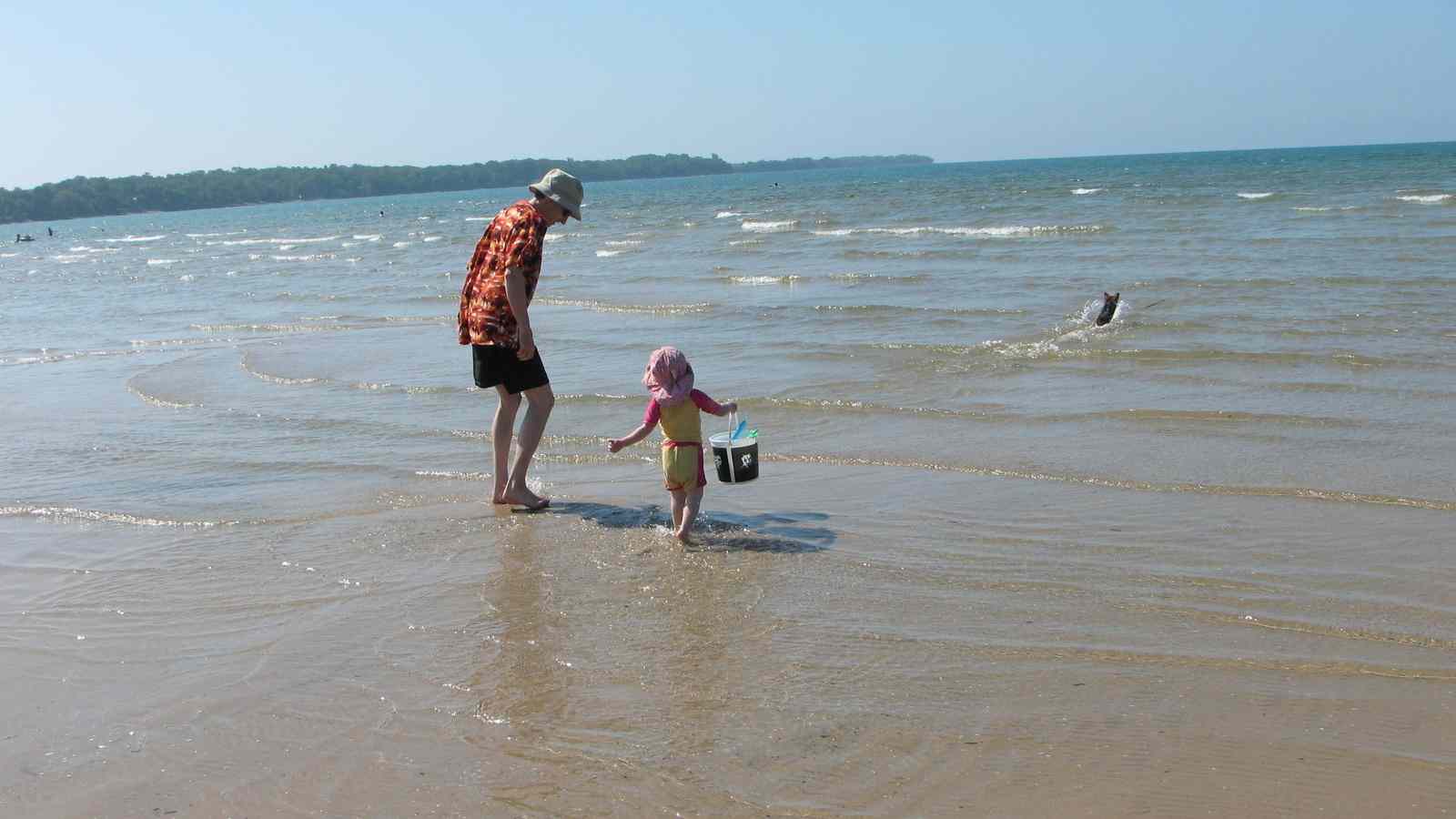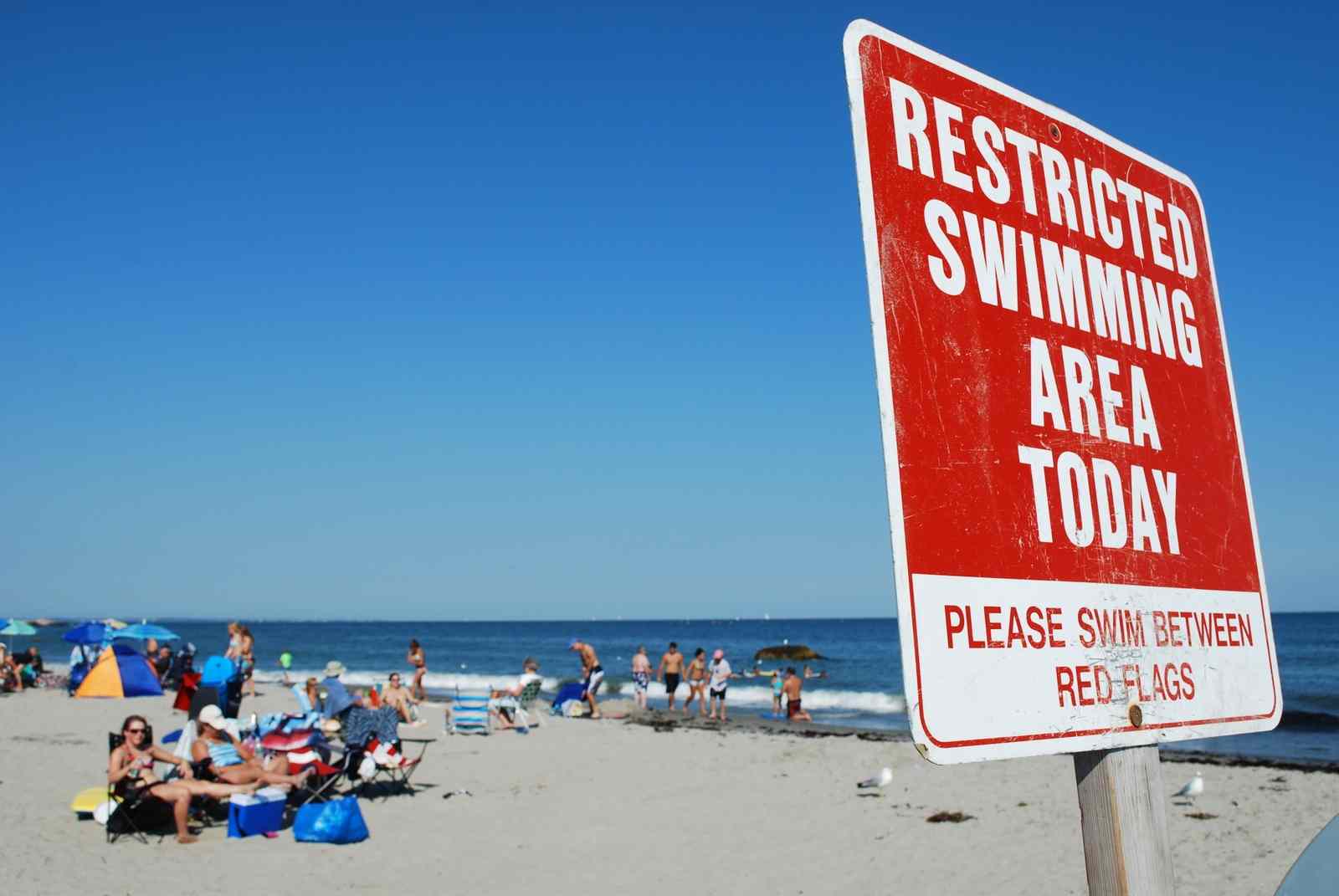Published June 21, 2018
It’s summer time. School’s finished. Everyone is eager to kick off their shoes and plunge into the water at their favourite beach. For many families, the July long weekend is the first chance they will have for a day together at the water’s edge.
But with any activity involving kids, safety is a high priority. Lucky for you, we have outlined below how to keep your kids safe at the beach this summer.
Because, true to form, the first ones pulling on their bathing suits and hurling themselves into the waves are the world’s greatest water lovers: kids. It’s easy to understand. How many of us have water as the backdrop to our fondest childhood memories? It’s magical stuff.
Kids and babies love the water. And we love that they love the water. Every time you take your kids out for a day by or on the water, you are providing them with quality time with their watershed. Helping kids build a strong bond with that lake, that pond, that beach, that river will last them a lifetime.

So how do you grapple with the inevitable question: "Is it okay to let my infant or my young child sit with me in the surf, or play and swim with me in the water?"
Maybe a more realistic question is: "My baby has been sneakily shoving wet sand in his mouth, and my daughter just learned to snorkel and refuses to lift her face out of the lake. Could they get sick?"
These are important questions, but even more important are the answers.
Here are 9 basic water safety tips for kids to help keep your families safe when swimming at the beach:
1
Check for swimming advisories
Check beach conditions first before heading out! Consult Great Lakes Guide before you leave and look for signs or flags at the beach. Advisories, warnings, postings, bans, and beach closures are all different ways of saying that you are at risk if you touch the water.
2
Stay out of the sand if there is a swimming advisory
When a beach or swimming site is posted with an advisory, you should assume the sand is also contaminated, especially at the water’s edge. Pathogens can persist in sand longer than in water.
3
Avoid contact with water for three days after heavy rain or a storm event
When it rains a lot, contaminants are carried into the watershed from both riverine and stormwater discharges. Also, during heavy rain, wastewater can overwhelm treatment facilities, leading to sewage bypasses.
Water quality sampling results are not available for 24 to 48 hours after water is tested. That means, unless the health unit has taken precautionary measures, a beach might not be closed or posted with an advisory for a few days after it rains even though the water exceeds standards. In rural areas, runoff from fields and septic tanks can lead to water quality problems, too.
To be on the safe side, always assume the water is contaminated after a rain event, and check beach conditions online.
4
Look for pipes
Avoid swimming, wading, sitting, or splashing near ditches and drains, sewage outfalls, and the mouths of rivers and creeks. This is where the highest concentration of contaminants will be.
5
Trust your nose
If the water looks or smells bad, don’t go swimming. If the water is milky or murky, covered in scum or algae, smells of sewage or strongly of algae, don’t go swimming at the beach.
6
Look for your toes
If you can’t see your kid’s toes when you are wading in the water, many health authorities warn you to stay away. You may step on something sharp or the water may be polluted.
7
Don’t copy other swimmers
Just because other people are swimming doesn’t mean the water is clean.

8
Rinse off after swimming at the beach
Many public beaches have showers. If you rinse your kids off when they are done swimming, it reduces the chances that they’ll take a rash or infection home with them.
9
Enjoy nature’s swimming holes!
It can be scary thinking about the risk to your child’s health, but open waters are often as clean or cleaner than swimming pools.
Are you curious to find out where would be the safe and fun beaches you can take your kids to?! Read our Top 3 beaches for beginner beach swimmers article to find your answers.
There’s no need for hesitation. Take your kids beach swimming today!
